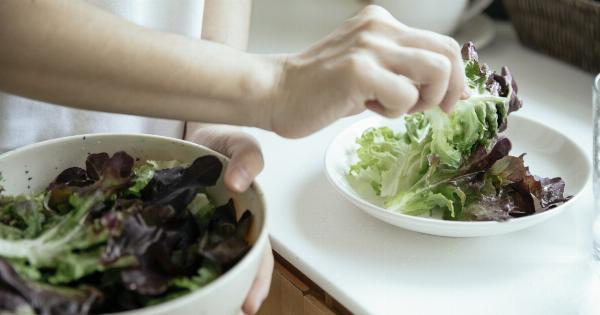Kidney cancer is one of the most common types of cancer, and its incidence has been steadily increasing over the past few decades.
While there are many factors that contribute to the development of kidney cancer, including genetics and environmental exposures, research has shown that diet plays a crucial role in its prevention and progression. In this article, we will explore the link between your diet and kidney cancer and provide some recommendations to reduce your risk.
Understanding Kidney Cancer
Kidney cancer, also known as renal cell carcinoma, is a disease that occurs when abnormal cells in the kidney grow and divide uncontrollably. This can lead to the formation of a tumor, which can then spread to other parts of the body if left untreated.
There are several risk factors associated with kidney cancer, such as smoking, obesity, high blood pressure, and family history of the disease.
However, recent research has highlighted the role of diet in both the development and progression of kidney cancer.
The Role of Diet in Kidney Cancer Development
A diet rich in certain nutrients and substances has been found to increase the risk of developing kidney cancer. Here are some dietary factors that have been linked to kidney cancer:.
Sodium Intake
High intake of sodium, typically from processed foods and table salt, has been associated with an increased risk of kidney cancer. Excess sodium can elevate blood pressure and lead to kidney damage, potentially promoting the growth of cancer cells.
Red and Processed Meat
Consumption of red and processed meats has been consistently linked to various types of cancer, including kidney cancer.
These meats contain compounds that can damage DNA and increase inflammation, contributing to the development and progression of cancer.
Obesity and Excess Body Fat
Obesity is a well-established risk factor for several types of cancer, including kidney cancer. Excess body fat produces hormones and inflammatory substances that can promote tumor growth and progression.
Sugar-Sweetened Beverages
Sugar-sweetened beverages, such as soda and sweetened juices, have been associated with an increased risk of kidney cancer.
These beverages, high in added sugars, can lead to weight gain and insulin resistance, both of which are linked to cancer development.
Alcohol Consumption
Excessive alcohol consumption has been found to increase the risk of kidney cancer. Alcohol can damage the kidneys and impair their function, ultimately increasing the vulnerability to cancer development.
Protective Dietary Factors
While certain dietary factors can increase the risk of kidney cancer, there are also foods and nutrients that have been shown to have a protective effect against the disease:.
Fruits and Vegetables
Diets rich in fruits and vegetables, particularly those high in antioxidants and phytochemicals, have been associated with a reduced risk of kidney cancer.
These foods help combat oxidative stress and inflammation, which are key drivers in cancer development.
Whole Grains and Fiber
Consuming whole grains and fiber-rich foods, such as whole wheat bread, brown rice, and legumes, has been linked to a lower risk of kidney cancer. Fiber helps promote healthy digestion and eliminates carcinogens from the body.
Healthy Fats
Including sources of healthy fats, such as avocados, olive oil, and fatty fish, in your diet may help protect against kidney cancer. These fats contain omega-3 fatty acids and other beneficial compounds that have anti-inflammatory properties.
Hydration
Staying properly hydrated is essential for kidney health. Drinking an adequate amount of water helps flush out toxins and waste products, reducing the risk of kidney damage and potentially kidney cancer.
Conclusion
Your diet plays a crucial role in determining your risk of developing kidney cancer.
While certain dietary factors, such as high sodium intake, red and processed meat consumption, and sugar-sweetened beverages, increase the risk, others like fruits, vegetables, whole grains, healthy fats, and hydration can help protect against the disease. By adopting a healthy and balanced diet, you can significantly reduce your risk of kidney cancer and improve your overall health and well-being.






























